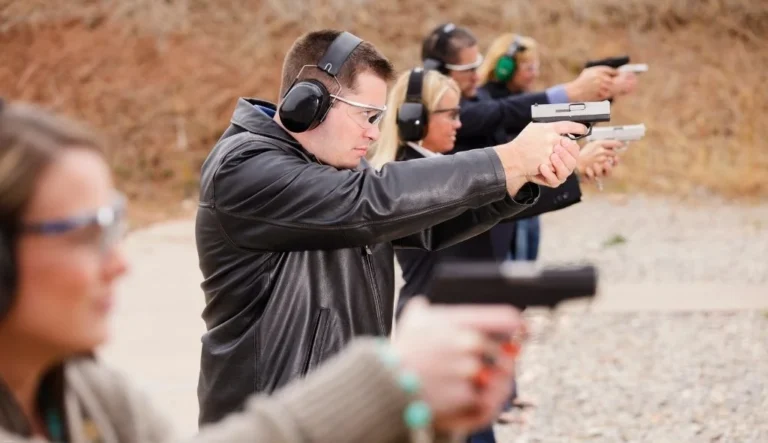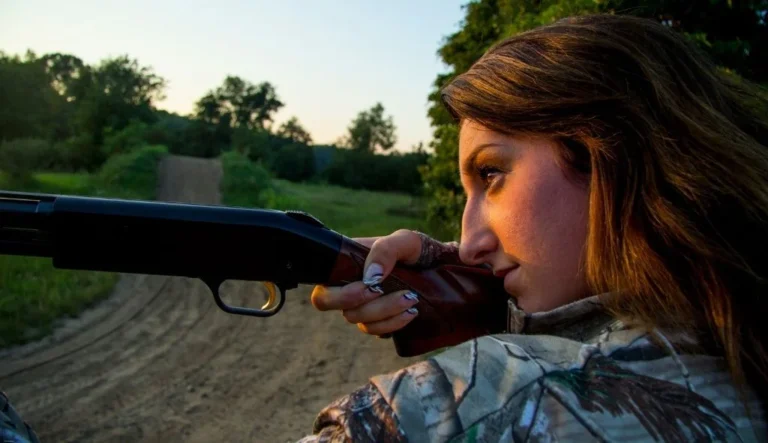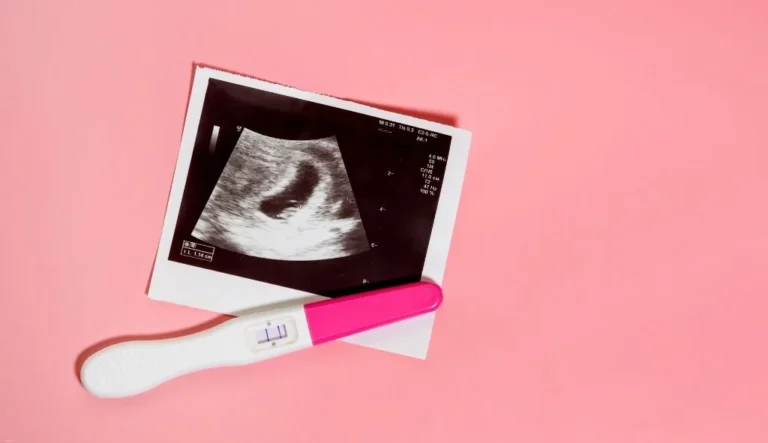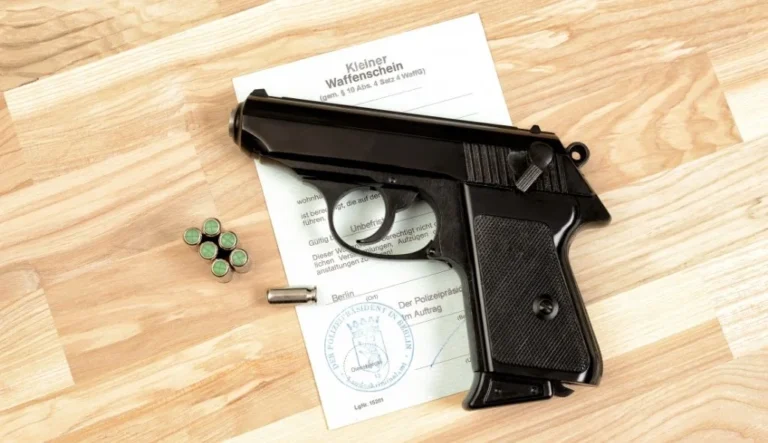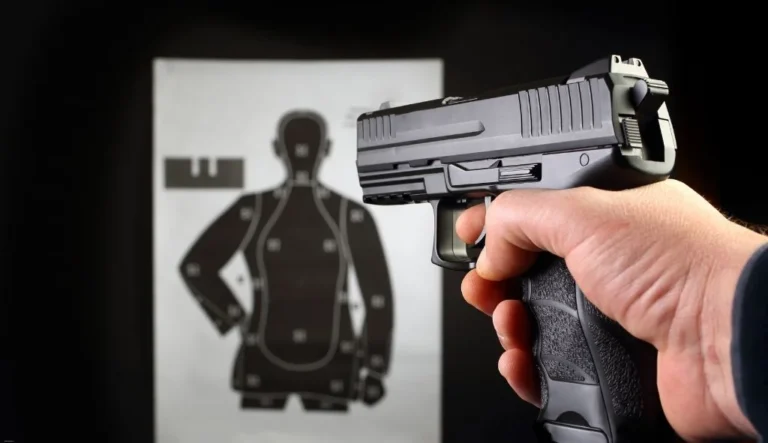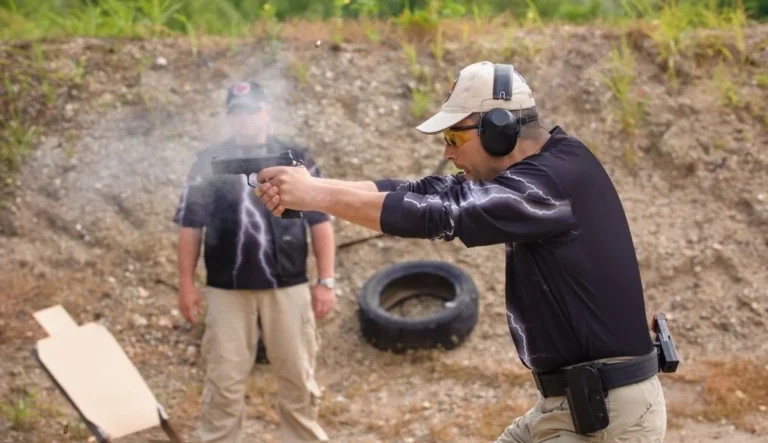Generally, felons are prohibited from going to shooting ranges due to federal and state laws that restrict their access to firearms. However, some exceptions exist, and the rules can vary by state and individual circumstances.
Federal Laws and Restrictions
The Gun Control Act of 1968
The Gun Control Act of 1968 is a federal law that prohibits certain individuals, including convicted felons, from possessing firearms. This law applies to all 50 states and has significant implications for felons who wish to visit shooting ranges.
Under this act, it is illegal for a person convicted of a felony to possess a firearm or ammunition. This restriction extends to handling firearms at shooting ranges, even if the felon does not own the gun.
Penalties for Violation
Violating the Gun Control Act can result in severe penalties. A felon found in possession of a firearm, including at a shooting range, may face:
- Up to 10 years in federal prison
- A fine of up to $250,000
- Both imprisonment and a fine
These penalties underscore the seriousness with which the federal government treats firearm possession by felons.
State Laws and Variations
While federal law provides a baseline prohibition, state laws can vary in their approach to felons and firearms. Some states have more restrictive laws, while others may offer paths to rights restoration.
Examples of State Variations
- California: Felons are prohibited from possessing firearms or ammunition, with no exceptions for shooting ranges.
- Texas: After five years from release from confinement or supervision, felons may possess firearms in their home for self-defense.
- Indiana: Felons may petition for restoration of firearm rights through an expungement process.
It’s crucial for felons to understand both federal and state laws in their area, as compliance with one does not guarantee compliance with the other.
Exceptions and Rights Restoration
While the general rule prohibits felons from visiting shooting ranges, there are some exceptions and paths to rights restoration that may allow a felon to legally use a shooting range.
Expungement
Expungement is a legal process that can effectively erase a felony conviction from a person’s record. If successful, an expungement may restore a person’s right to possess firearms and visit shooting ranges.
The eligibility criteria and process for expungement vary by state. Generally, factors considered include:
- The nature of the felony
- Time elapsed since the conviction
- The individual’s criminal history since the conviction
- Evidence of rehabilitation
Pardons
A pardon from the state governor or the President of the United States can restore a felon’s civil rights, including the right to possess firearms. However, pardons are rare and typically granted only in exceptional circumstances.
Rights Restoration Programs
Some states have specific programs or processes for restoring firearm rights to felons. These programs often require:
- A waiting period after completion of the sentence
- Evidence of good behavior
- A formal application or petition process
It’s important to note that even if state rights are restored, federal prohibitions may still apply unless specifically addressed.
Risks and Considerations for Felons
Even in cases where a felon believes their rights have been restored or an exception applies, visiting a shooting range carries risks that should be carefully considered.
Legal Ambiguity
The intersection of federal and state laws can create legal ambiguities. A felon might believe they are acting within their rights based on state law, only to find themselves in violation of federal law.
Constructive Possession
The legal concept of constructive possession means that a felon could be charged with firearm possession even if they don’t physically handle a gun. Being in an area with easy access to firearms, such as a shooting range, could potentially lead to constructive possession charges.
Background Checks
While not all shooting ranges conduct background checks, many do require identification and may have policies against allowing felons on the premises. Providing false information on range waivers or membership applications can lead to additional legal troubles.
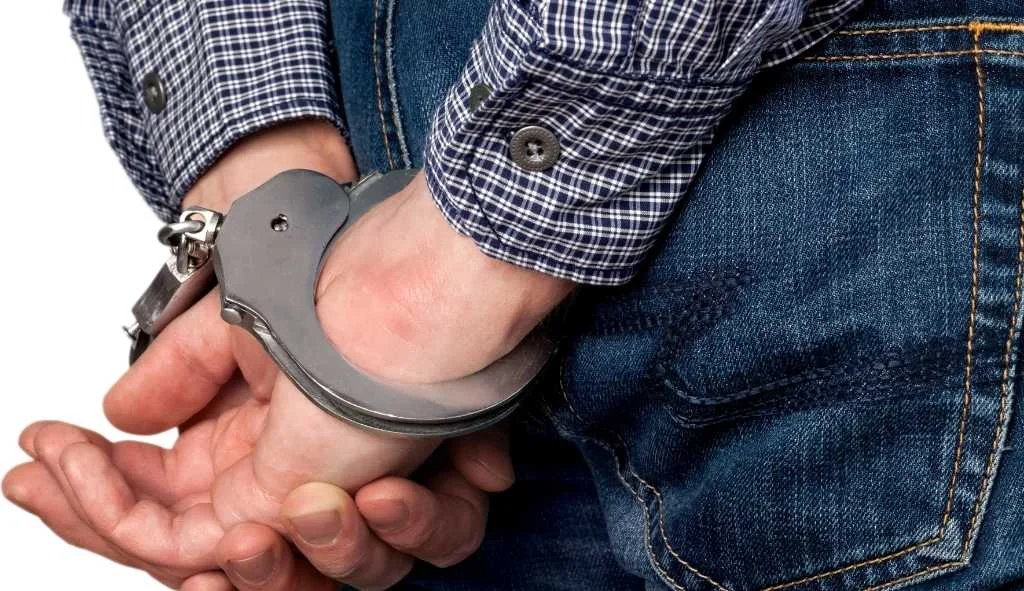
Alternatives for Felons
Given the legal risks and restrictions, felons interested in shooting sports or firearms may need to explore alternatives that don’t involve handling real firearms.
Air Guns and Replicas
Air guns, BB guns, and replica firearms don’t fall under the same legal restrictions as firearms in most jurisdictions. These can provide a similar experience without the legal risks associated with real firearms.
Virtual Shooting Ranges
Some facilities offer virtual shooting experiences using advanced simulators. These allow individuals to practice marksmanship skills without handling actual firearms.
Archery
Archery ranges provide a similar target practice experience without the legal complications associated with firearms for felons.
Steps for Felons Considering Visiting a Shooting Range
If a felon is considering visiting a shooting range, there are several important steps they should take to ensure they are acting within the bounds of the law.
1. Consult with a Lawyer
Before taking any action, it’s crucial to consult with a lawyer who specializes in firearms law and rights restoration. They can provide personalized advice based on the specific circumstances of the felony conviction and current laws.
2. Research State Laws
Thoroughly research the laws in your state regarding felons and firearms. Pay particular attention to any rights restoration processes that may be available.
3. Consider Expungement or Rights Restoration
If eligible, consider pursuing expungement of the felony conviction or formal rights restoration through state programs.
4. Contact the Shooting Range
If legal advice suggests it may be permissible to visit a range, contact the range directly to inquire about their policies regarding felons. Be honest about your situation to avoid potential legal issues.
5. Obtain Written Confirmation
If a lawyer confirms that visiting a range is legal in your situation, obtain this advice in writing. Similarly, if a range agrees to allow your visit, request written confirmation of their policy.
The Role of Shooting Ranges
Shooting ranges play a crucial role in firearm safety and training, but they also have responsibilities when it comes to legal compliance.
Range Policies
Many shooting ranges have policies in place regarding felons and other prohibited persons. These policies may include:
- Requiring all visitors to sign waivers affirming they are not prohibited from possessing firearms
- Conducting background checks on members or regular visitors
- Reserving the right to refuse service to anyone they believe may be legally prohibited from handling firearms
Liability Concerns
Shooting ranges face potential liability if they knowingly allow prohibited persons to use their facilities. This concern often leads to strict policies and enforcement.
Safety Considerations
Beyond legal concerns, ranges must prioritize safety for all visitors. This can lead to cautious policies regarding who is allowed to handle firearms on their premises.
Frequently Asked Questions
Can a felon go to a shooting range just to watch?
While federal law primarily prohibits felons from possessing firearms, not from being in their presence, many ranges have policies against felons being on the premises at all due to liability concerns. It’s best to check with the specific range and consult a lawyer before visiting, even as an observer.
Does the type of felony matter when it comes to gun rights?
In some cases, yes. Certain states may have different restoration processes or waiting periods depending on whether the felony was violent or non-violent. However, federal law generally treats all felonies the same for the purposes of firearm prohibition.
Can a felon use a black powder or antique firearm at a range?
Federal law does not consider certain antique firearms to be “firearms” for regulatory purposes. However, state laws vary, and many ranges prohibit these weapons due to safety concerns. Always check state laws and range policies before attempting to use any type of weapon as a felon.
If a felon’s rights are restored in one state, does that apply in all states?
Not necessarily. Rights restoration in one state does not automatically transfer to other states or override federal prohibitions. It’s crucial to understand both the state and federal implications of any rights restoration.
Can a felon own or use air guns or BB guns?
In most jurisdictions, air guns and BB guns are not considered firearms under the law. However, some states or localities may have restrictions. Always check local laws before purchasing or using these items.
Conclusion
The question of whether a felon can go to a shooting range is complex, with no simple yes or no answer that applies in all cases. Federal law generally prohibits felons from possessing firearms, which effectively bars them from most shooting range activities. However, variations in state laws, potential for rights restoration, and the specific circumstances of an individual’s case can create exceptions or pathways to legal firearm use.
Felons interested in visiting shooting ranges or regaining their firearm rights should:
- Understand the federal prohibitions in place
- Research their state’s specific laws and restoration processes
- Consult with a lawyer specializing in firearms law
- Consider pursuing expungement or formal rights restoration if eligible
- Explore legal alternatives that don’t involve handling firearms
It’s crucial to approach this issue with caution and thorough legal guidance. The consequences of violating firearm laws as a felon can be severe, potentially resulting in new felony charges, fines, and imprisonment.
For shooting ranges and the broader community, this issue highlights the ongoing challenges of balancing public safety, individual rights, and the complexities of the legal system. As laws and societal attitudes continue to evolve, the landscape of firearm rights for felons may change, but for now, the general rule remains one of prohibition with limited, carefully regulated exceptions.
Ultimately, the path forward for felons interested in shooting sports or firearm ownership is one that requires patience, diligence, and a commitment to operating within the bounds of the law. While the restrictions can be frustrating for those who have served their sentences and seek to move forward with their lives, understanding and respecting these laws is crucial for personal safety, legal compliance, and community well-being.

